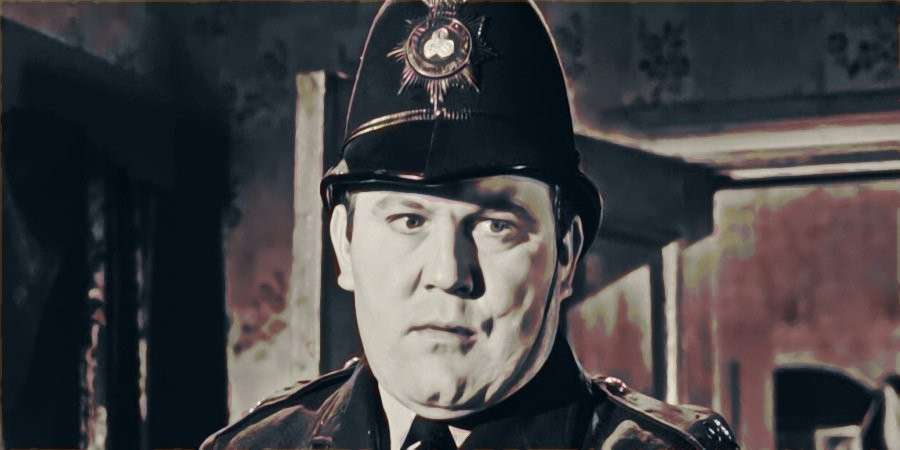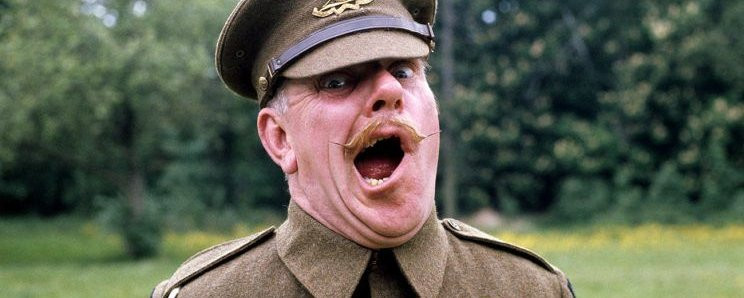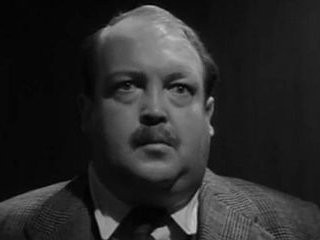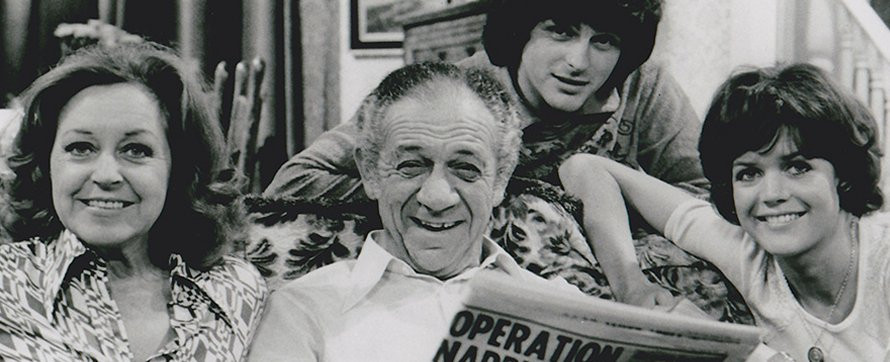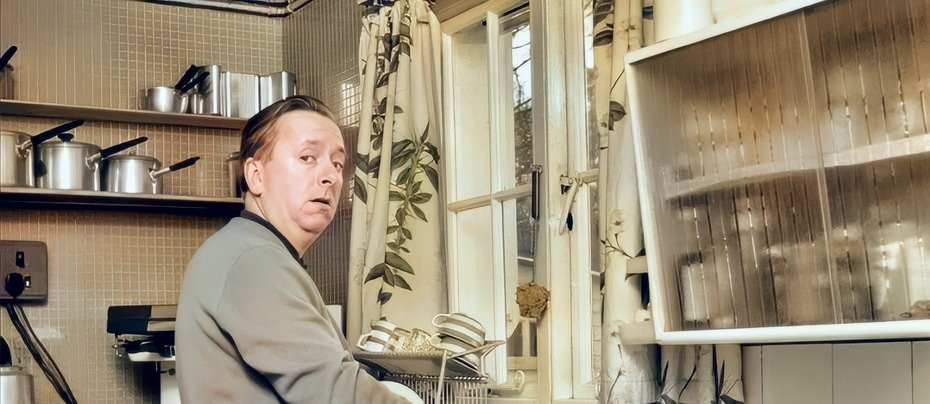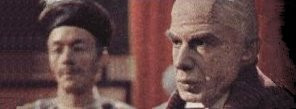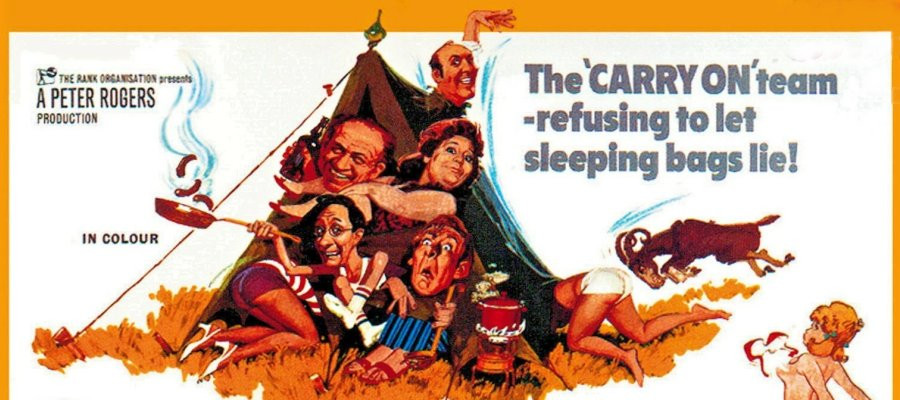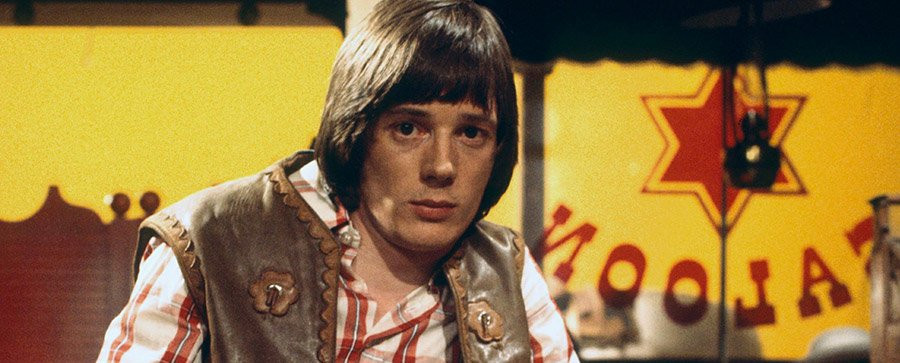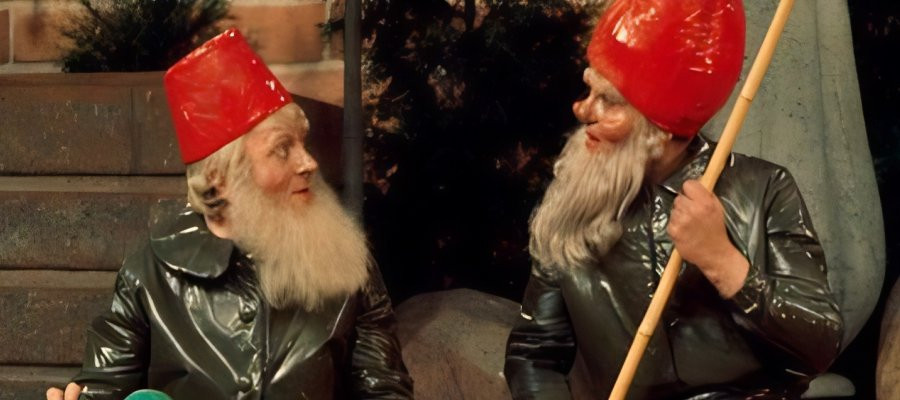
The Gnomes of Dulwich
1969 - United KingdomOff-beat TV series that reunited Terry Scott and Hugh Lloyd a year after their last series together found the two stars in the almost surreal guise of two garden gnomes!
This BBC comedy revealing the secret lives of the gnomes was written by Jimmy Perry and was supposedly a satirical look at the controversies surrounding a number of issues at the time including Britain's entry into the Common Market. The title itself was a play on Harold Wilson's famous "gnomes of Zurich" remark about Swiss bankers. At the time, Perry said "Garden gnomes seem to fascinate everyone. They're either amusing or repulsive, according to taste. I originally wrote a short sketch about two little stone gnomes." Perry actually had Morecambe and Wise in mind at the time he wrote his sketch. "But my wife told me the idea was good enough to make a whole show. So I took her advice and went ahead and wrote a whole show, this time with Terry Scott and Hugh Lloyd in mind. They liked the script, the BBC was willing to give it a try, and I ended up with six episodes."
In the garden of 25 Telegraph Road, Dulwich, live three traditional British stone gnomes. They seem to live serene lives, Big, played by Terry Scott, fishing all day, Small (Hugh Lloyd) feeding his frog and Old (John Clive) fast asleep with his spade. However, in a neighbouring garden, new Empire-made plastic gnomes have been introduced and this leads to a cultural conflict between the two groups, with the plastic gnomes being regarded as a constant threat. Hugh Lloyd pointed out that "Because we're playing creatures on an entirely different plane we are able to look at silly human problems from a new perspective." These problems include the old school tie mentality, religion, war, politics, drink and race relations.
Although the actors had their doubts at first they soon changed their minds. "We weren't sure the idea would run to six shows," Scott said, "but when we recorded the first one we came out of our dressing rooms and there we were - authentic stone gnomes. We sprang to life." They were required to wear bizarre costumes and highly elaborate make-up to turn them into garden gnomes (a process the actors referred to as 'gnomeification') and the sets were built to a huge scale to make them look tiny.
One side effect of starring in this series was remarked upon by Terry Scott. "Whenever I pass a garden decorated with gnomes - and Mr Bunn, our baker, has some - I start wondering if they've had a good night. I've even had an impulse to trespass and start moving the gnomes about!"
Humans were unseen in the series apart from the occasional shadow or a glimpse of feet along with snatches of conversation and even the actors themselves were made as unrecognisable as possible, as Leon Thau, who played one of the Empire gnomes commented at the time; "When you first start in the profession you can't wait to slap on heavy make-up. Now my actors vanity is in for a hard time because nobody is going to know it's me hiding behind all the plastic and an oriental accent!" Hugh Lloyd's view: "Maybe the BBC wanted to give us a complete change from our old Hugh and I characters, so we've been disguised as heavily as possible." Whether the experiment worked or not is hard to judge. Only one series of The Gnomes of Dulwich was made and unfortunately the tapes for this series do not seem to have survived the BBC's famous 'house-cleaning' of the late 1970s.
Trivia: The gnomes found themselves sold off in the last episode. They didn't know who had bought them, but the new address was No.10 Downing St. London!
Big objected to the fact that the ornamental pond they were placed next to was not finished yet and he had to have his fishing line dangling in a plastic bucket. "Well, you know how I feel about plastic!"
The last line in the programme was said by humans. "Do you like the new gnomes?" "Darling, I think as far as gnomes go, we've got the world beat!"
Seen this show? How do you rate it?
Seen this show? How do you rate it?
Published on December 19th, 2018. Written by Denise Lovell February 2006. Trivia: Maree Pavletich August 2007 for Television Heaven.



